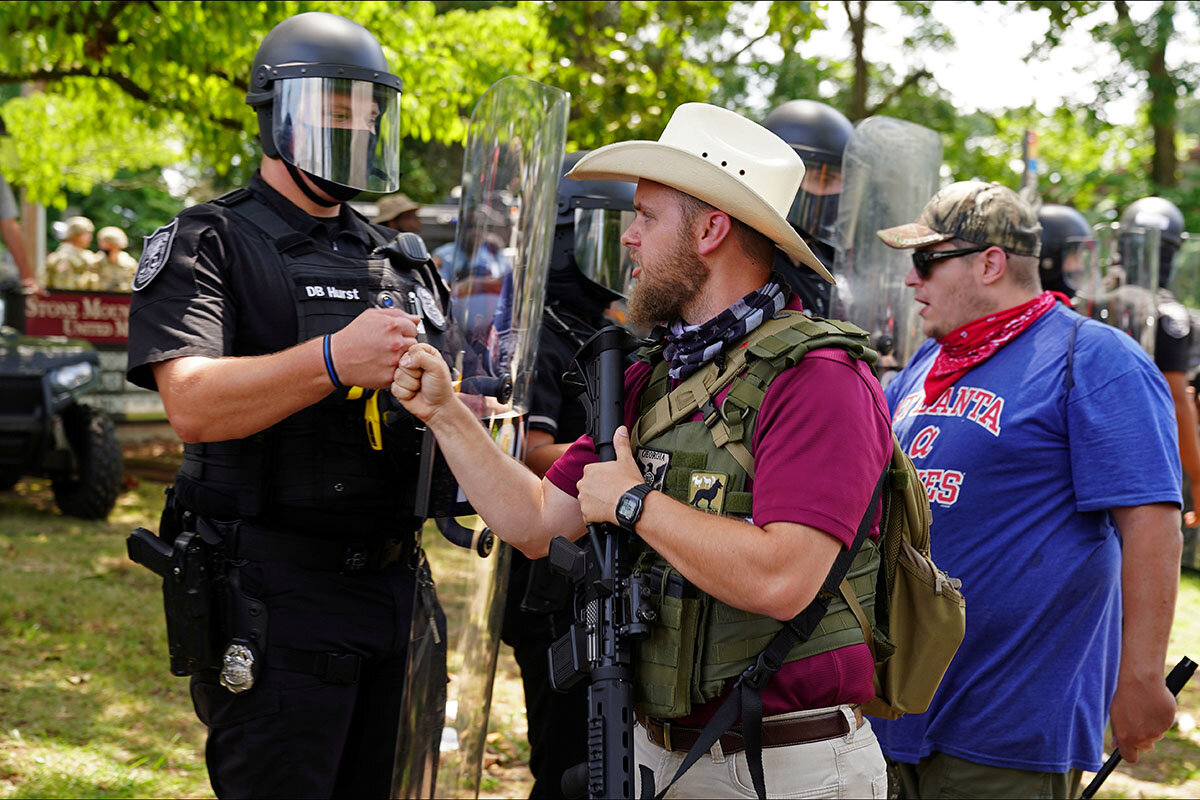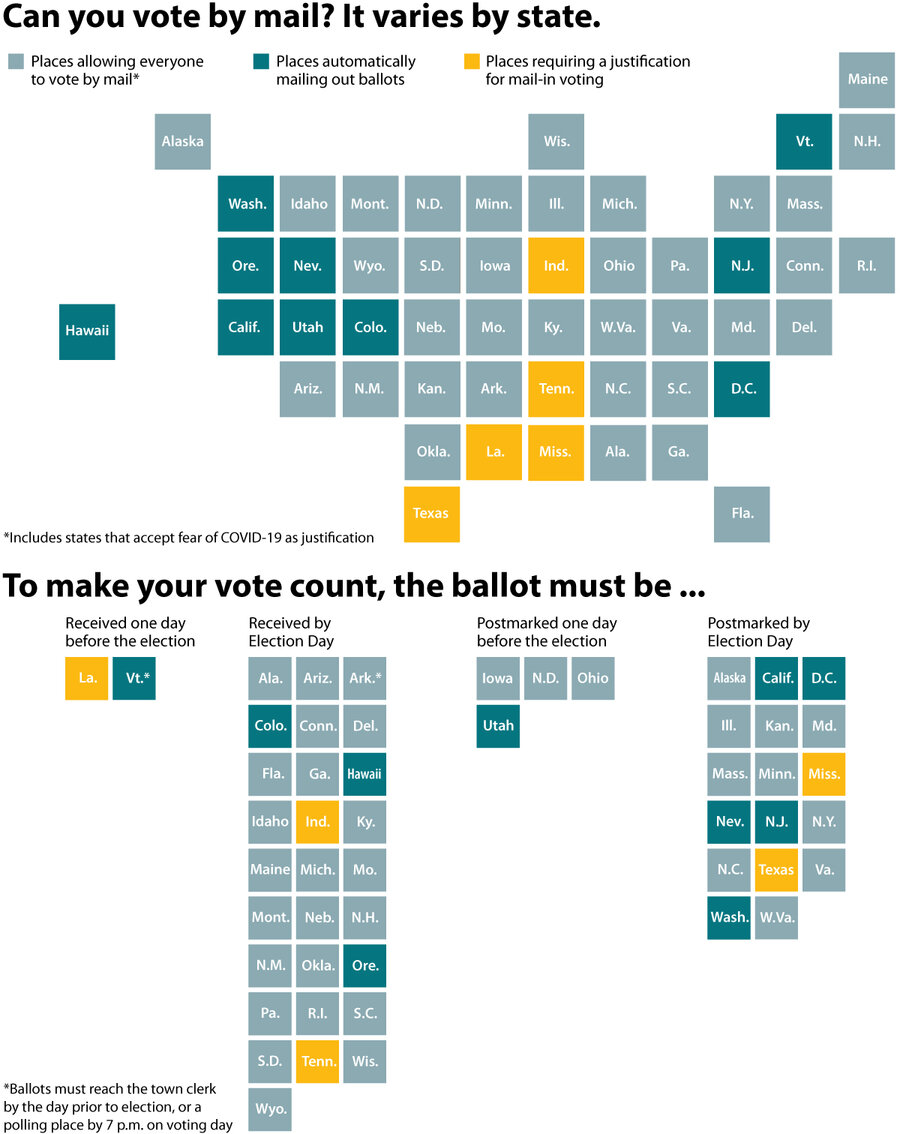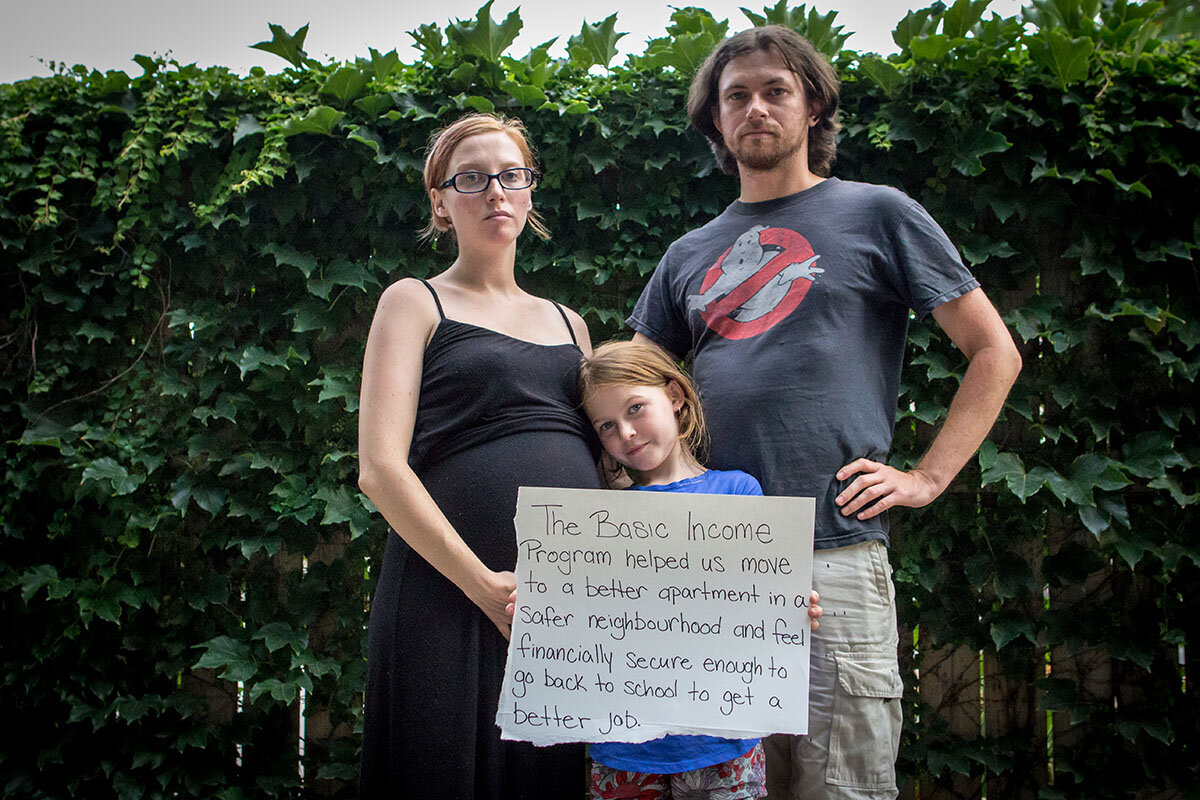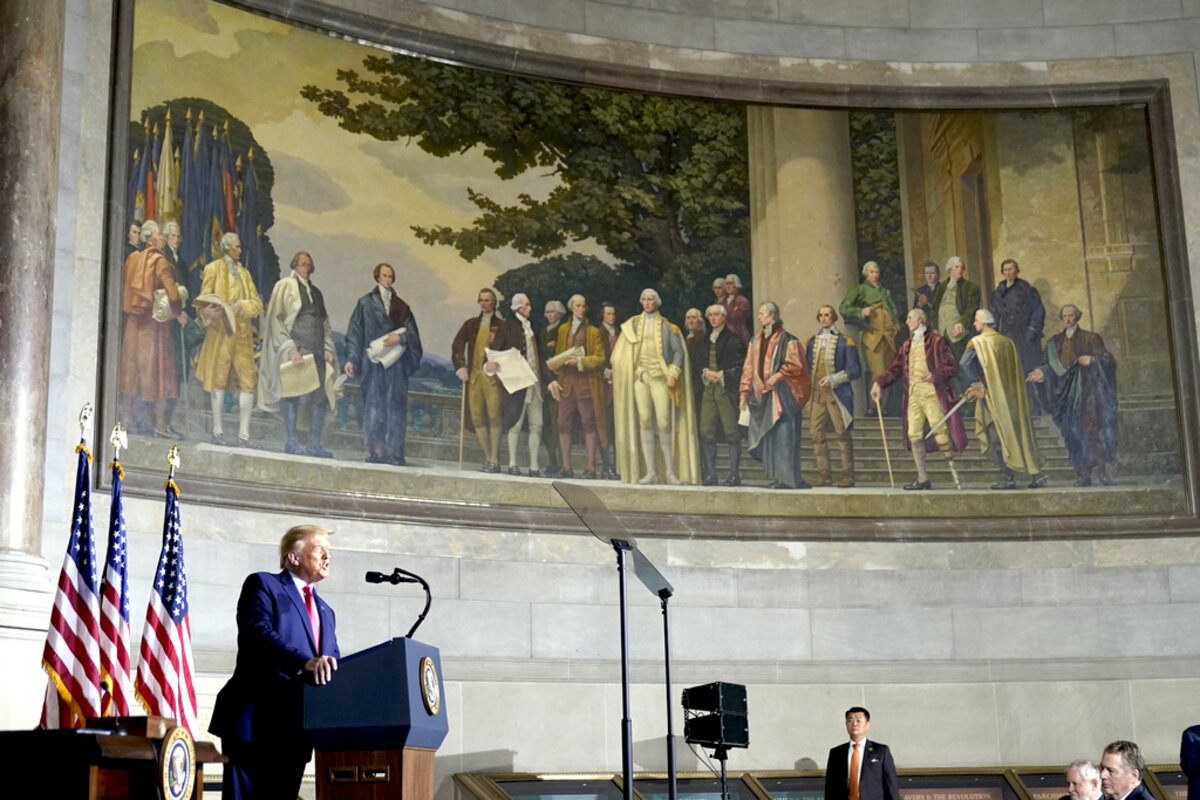Armed protests are revealing that the legal boundaries of the right to bear arms are not nearly as well defined as the right to free speech. That is leading to significant uncertainty.
Monitor Daily Podcast
- Follow us:
 Mark Sappenfield
Mark Sappenfield
Consciousness and intelligence have been thorny problems for science from the beginning. How does a felt experience arise from a physical thing? What actually is intelligence? Science still can’t fully answer these questions. But the search is worth following.
Take trees. Not so long ago, intelligent trees would have seemed the stuff of elves and ents and “Lord of the Rings.” But scientists now know what J.R.R. Tolkien imagined: Trees can communicate with one another, warn one another, even recognize their own offspring and help them grow. “There could be whole ways of being we don’t even have words for,” noted in Nautilus.
And it goes beyond Earth. Quantum physics has already scrambled our sense of perspective, suggesting that much of the universe exists in uncertainty until observed by a conscious being. That has led and to suggest consciousness might exist beyond any material self. It’s not that rocks can think, says , author of “Conscious: A Brief Guide to the Fundamental Mystery of the Mind.” It’s that consciousness might exist as a universal field – a matrix that pervades the universe, like spacetime.
It’s a controversial idea. But for a species that is perhaps too often convinced of the certainty of what it thinks, it is a wonderfully humbling reminder of how much remains to be understood.













